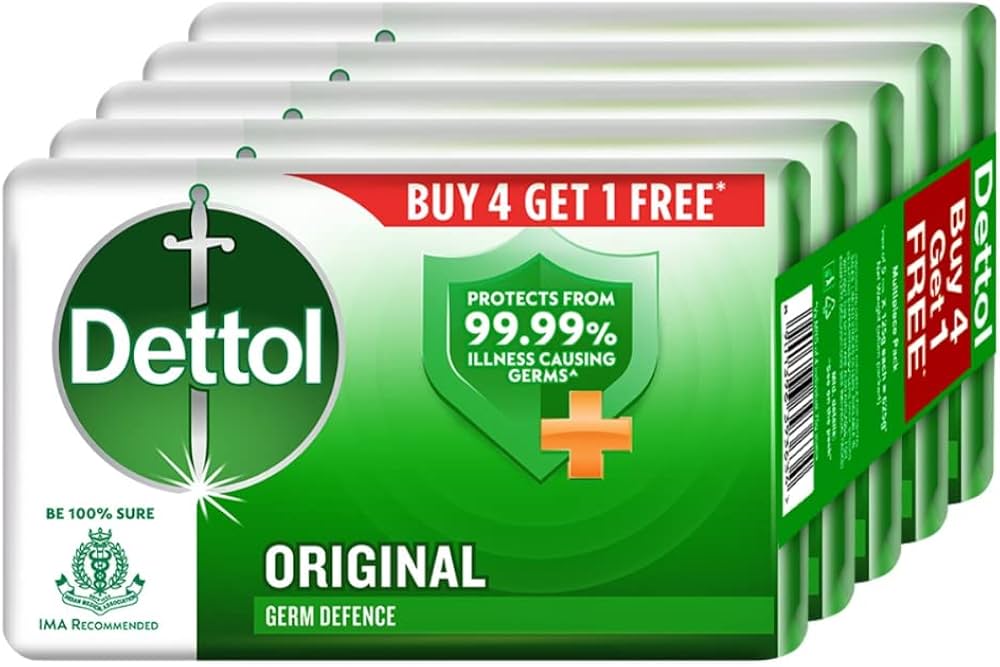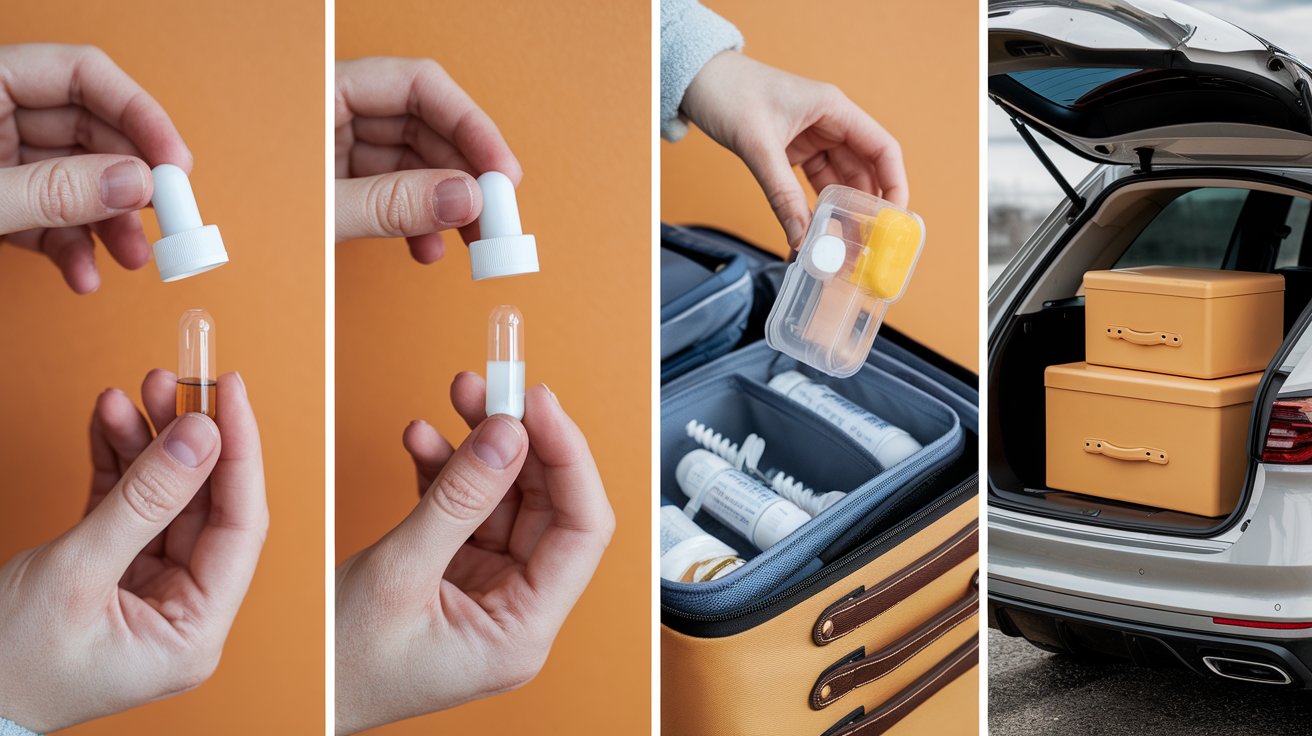Introduction to Dettol Soap
Dettol soap is a household name when it comes to hygiene and cleanliness. Since its inception in the early 20th century, Dettol has established itself as a trusted brand, synonymous with effective germ protection. While the brand has expanded to include various products like antiseptic liquids and disinfectants, Dettol soap remains one of its flagship offerings.
What makes Dettol soap stand out in a crowded market? It’s not just the strong antibacterial properties but also its versatility and accessibility. From households to hospitals, Dettol soap has earned its place in daily hygiene routines around the globe. In this article, we’ll delve deep into what makes Dettol soap a staple in personal care, its history, its benefits, and how to incorporate it into your daily routine.
The Origins of Dettol

The story of Dettol begins in the UK in the early 1930s when a chemist named Dr. Thomas E. Smith developed a disinfectant for surgical use. This formulation was later modified for consumer use, and in 1932, Dettol was born. Initially marketed as an antiseptic liquid, it quickly gained popularity for its effectiveness against germs.
In the 1950s, Dettol expanded its product line to include soaps. The introduction of Dettol soap was a game-changer. It made personal hygiene accessible to the masses, allowing people to protect themselves from germs simply by washing their hands or taking a shower. Over the decades, Dettol soap has evolved in response to changing consumer needs and scientific advancements, but its core mission of promoting hygiene has remained unchanged.
The Science Behind Dettol Soap
Dettol soap is formulated with active ingredients that target germs and bacteria. The primary antibacterial agent in Dettol soap is chloroxylenol, which is effective against a wide range of pathogens. This makes it a powerful tool in the fight against infections, particularly in settings where hygiene is critical.
The soap is designed to penetrate and dissolve dirt and oils, effectively washing away not just visible impurities but also microscopic germs. When you lather up with Dettol soap, you’re not just cleaning your skin; you’re actively killing harmful bacteria that can cause illness. This is especially important in today’s world, where heightened awareness around hygiene and health is paramount.
Additionally, Dettol soap is formulated to be gentle on the skin, making it suitable for daily use. Unlike some harsh antibacterial soaps that can strip the skin of its natural oils, Dettol is designed to cleanse without compromising skin health. This balance between efficacy and gentleness is a key selling point for the product.
Benefits of Using Dettol Soap
- Antibacterial Protection
The most significant benefit of using Dettol soap is its antibacterial properties. Regular use can help reduce the risk of infections by effectively eliminating bacteria from the skin. This is particularly beneficial during cold and flu season or in environments where germs are more prevalent, such as schools or healthcare settings.
- Skin Care
While Dettol soap is known for its cleansing abilities, it also contains moisturizing agents that help maintain skin health. Many users report that their skin feels clean and fresh without the dryness that can come from using other antibacterial soaps. This makes it a great choice for families, as it caters to a wide range of skin types, including sensitive skin.
- Versatility
Dettol soap isn’t just for handwashing. It’s versatile enough to be used for bathing, showering, and even as a pre-cleaning agent before applying other skincare products. Its all-around effectiveness means you can rely on it for various hygiene needs, from washing hands after gardening to bathing after a workout.
How to Use Dettol Soap Effectively
Using Dettol soap effectively can maximize its benefits. Here’s a simple guide:
Step 1: Wet Your Hands
Before applying soap, make sure your hands are wet. This helps create a lather that can penetrate dirt and germs more effectively.
Step 2: Apply the Soap
Take a generous amount of Dettol soap and rub it between your hands to create a rich lather. Make sure to cover all areas, including between your fingers and under your nails, where germs often hide.
Step 3: Scrub for 20 Seconds
For optimal effectiveness, scrub your hands for at least 20 seconds. This duration is crucial for ensuring that the soap has enough time to work on the germs.
Step 4: Rinse Thoroughly
After scrubbing, rinse your hands under clean, running water. Make sure to remove all soap residues, as any leftover soap can lead to irritation.
Step 5: Dry Your Hands
Use a clean towel or air dryer to dry your hands thoroughly. Damp hands can harbor bacteria, so ensure they are completely dry.
Dettol Soap Varieties
Dettol offers a range of soap varieties tailored to different consumer preferences and needs. Here are some popular options:
- Dettol Original Soap
The classic Dettol Original Soap is the most recognizable variant. It combines the iconic Dettol fragrance with strong antibacterial properties, making it a favorite for everyday use.
- Dettol Aloe Vera Soap
For those seeking a more moisturizing option, Dettol Aloe Vera Soap infuses the benefits of aloe vera, known for its soothing properties. This soap is perfect for individuals with dry or sensitive skin.
- Dettol Lemon Soap
With a refreshing lemon scent, this variant not only cleanses but also leaves you feeling invigorated. The zesty aroma makes it a popular choice for morning showers.
- Dettol Men’s Soap
Targeted specifically for men, this variant often features a more robust fragrance and additional cleansing agents designed to tackle sweat and body odor effectively.
Dettol Soap in the Age of Awareness
As global awareness about hygiene increases, especially in light of recent health crises, Dettol soap has found renewed importance. Health organizations emphasize handwashing as a crucial practice in preventing disease spread. Dettol soap’s proven effectiveness makes it a go-to choice for individuals and families looking to enhance their hygiene routines.
The Role of Dettol Soap in Infection Control
Dettol soap is often recommended in healthcare settings due to its reliability in infection control. Healthcare professionals use it to wash their hands before and after patient interactions, significantly reducing the risk of cross-contamination. This practice reinforces the importance of good hygiene not just in healthcare, but in everyday life.
Promoting Hygiene Awareness
Dettol has been active in promoting hygiene awareness through campaigns and educational programs. These initiatives aim to educate people on the importance of regular handwashing and proper hygiene practices. By associating its brand with health education, Dettol continues to strengthen its reputation as a leader in hygiene products.
Common Misconceptions About Dettol Soap
Despite its popularity, several misconceptions about Dettol soap persist. Let’s clear a few of them up.
Misconception 1: It’s Too Harsh for Daily Use
Many people fear that the antibacterial properties of Dettol soap make it harsh on the skin. However, most variants are formulated to be gentle enough for daily use. If you have particularly sensitive skin, opting for varieties like Aloe Vera can provide additional soothing benefits.
Misconception 2: It Replaces Regular Hygiene Practices
While Dettol soap is an effective tool for maintaining hygiene, it should complement other practices, such as regular handwashing, sanitizing surfaces, and maintaining a clean living environment. It doesn’t replace the need for good hygiene habits but rather enhances them.
Misconception 3: It Kills All Germs
While Dettol soap is effective against a broad spectrum of bacteria and viruses, it’s important to note that no product can guarantee the complete elimination of all pathogens. However, regular use significantly reduces the microbial load on your skin, contributing to better overall hygiene.
The Environmental Impact of Dettol Soap
In an era where consumers are becoming increasingly conscious of their environmental footprint, it’s essential to consider the sustainability practices of brands like Dettol.
Eco-Friendly Initiatives
Dettol has taken steps to reduce its environmental impact through various initiatives. This includes sustainable sourcing of ingredients, reducing plastic waste through recyclable packaging, and investing in community programs that promote hygiene and health.
Consumer Responsibility
As consumers, we also have a role to play. Choosing products with eco-friendly packaging, participating in recycling programs, and being mindful of our water usage while washing hands can contribute to a more sustainable future.
Conclusion: Embracing Hygiene with Dettol Soap
In today’s fast-paced world, maintaining personal hygiene has never been more crucial. Dettol soap offers a simple yet effective way to protect yourself and your loved ones from harmful germs and bacteria. Its long-standing reputation, scientific formulation, and commitment to health make it a staple in many homes.
Incorporating Dettol soap into your daily routine not only enhances your hygiene practices but also empowers you to take charge of your health. As we continue to navigate an increasingly complex landscape of health awareness, having a reliable partner like Dettol can make all the difference.
So the next time you’re looking to boost your hygiene game, remember that Dettol soap is more than just a cleaning product—it’s a commitment to a healthier lifestyle.



